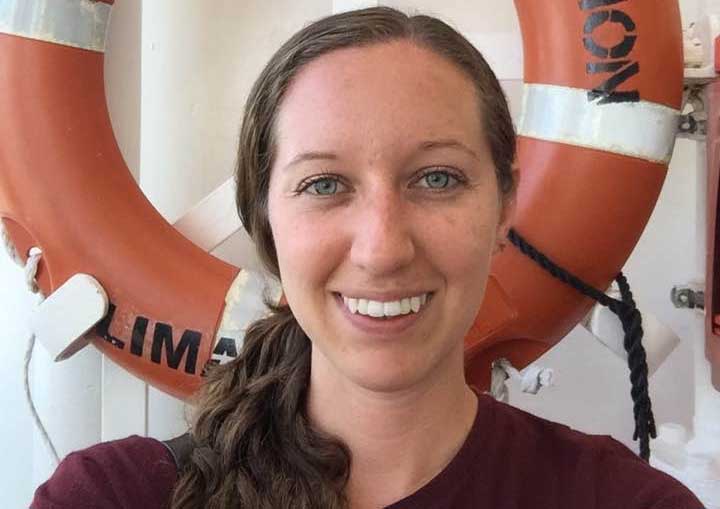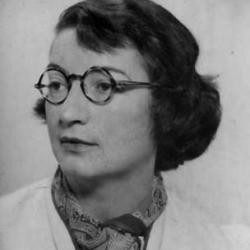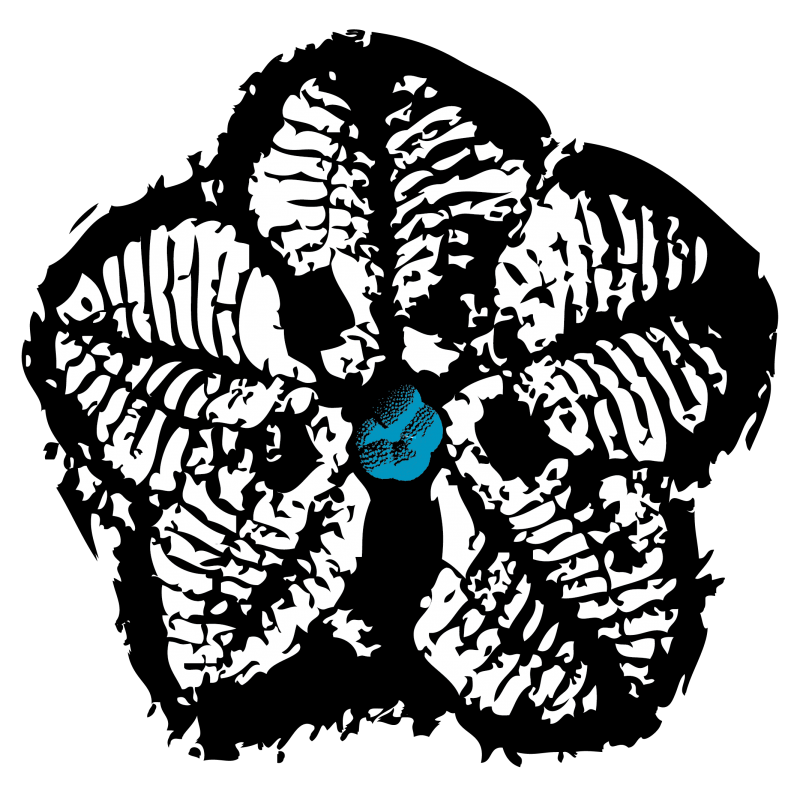Helping hand: Postdoc helps establish conference travel grant

Adriane Lam laid the foundation for her future scientific career when she was still an undergraduate, thanks to her first academic conference.
Not only was she able to present her own research, she forged crucial connections with established scholars, who became advisors years down the road during her master’s and doctoral programs. Conferences are an important part of the academic ecosystem, giving scholars, industry professionals and science communicators the opportunity to come together and share data, teaching strategies, new initiatives and more.
They are also expensive to attend — which can put them out of reach for students already struggling to pay their bills.
Now a Presidential Diversity Postdoctoral Fellow in Binghamton University’s Geological Sciences program, Lam is looking to make conferences more accessible to students and amateur scientists alike through the Tilly Edinger Travel Grant for Students and Avocational Scientists, established through the educational outreach website Time Scavengers. The grant’s first eight recipients will be announced this month.
“It turns out we had the funds to support all eight of our applicants this cycle, which was really exciting!” Lam said. “All of our awardees are students who hold one or multiple underrepresented identities, and are located all over the world.”
Time Scavengers
Lam co-founded Time Scavengers as a graduate student, with the goal of making science accessible to a broad audience, including those with no formal scientific training.
At the time, she was taking a fascinating class at the University of Massachusetts Amherst on climate change that clearly broke down the issue. But when she followed coverage of the 2016 presidential elections that year, she was shocked by the misinformation and disinformation surrounding the topic.
“Over the course of a few weeks, I began to think of how useful it would be if folks had information available to them to understand climate change in a digestible format, much like it was taught to me in the class I was taking,” she said.
She texted her friend and colleague Jennifer Bauer, currently research museum collection manager at the University of Michigan’s Museum of Paleontology. She immediately texted back with an enthusiastic “Yes!”
Today, Time Scavengers features more than 40 information pages in five major categories, giving readers insight into key geological concepts, access to resources for educators of all levels and additional resources where readers can dive more deeply into topics of interest. The Climate Change and Evolution pages are the site’s “meat and potatoes,” with six pages on each major topic, Lam said. She plans to expand with more content for Time Scavengers’ growing online community.
The site also has six blogs intended to give a behind-the-scenes view of science, covering such topics as fieldwork, community engagement and how scientists gather and interpret data. One blog, Meet the Scientist, was specifically created to showcase the diversity of the scientific community and show the varied paths people take to enter the field.
“Twice a month, we feature scientists — professional and avocational/amateur — at all career stages and from all backgrounds,” Lam said.
In addition to Lam and Bauer, 15 site collaborators help write the blogs, create page content and serve on committees. They include avocational and amateur paleontologists, museum curators, students, postdocs and professors from a diverse array of backgrounds.
Time Scavengers has also branched out into other endeavors, such as a summer science communications internship created by collaborator Dr. Sarah Sheffield for University of South Florida undergraduates. Their latest initiative is the Tilly Edinger travel grant, which is intended to improve accessibility in the fields of paleontology, paleoclimatology/paleoceanography and climate research.
“We know there is a diversity problem in STEM, especially in the geosciences,” Lam acknowledged.
Unlike similar grants, the Tilly Edinger Travel Grant pays for conference costs up front rather than through reimbursement and all conference attendees are eligible — not just those presenting data. It’s also one of the few grants available to avocational and amateur scientists, who play an important role in the geosciences; often, they’re the ones out in the field, finding new fossil locations, Lam said.
Applications are also ranked to prioritize support for applicants with identities historically excluded or underrepresented in the geosciences. Time Scavengers hopes to have two or three rounds of funding per year to support travel and attendance at as many conferences as possible.
Due to the pandemic, most conferences have shifted to the digital realm. As a result, this year’s Tilly Edinger grant will cover abstract fees, conference registration costs, and the cost for students and avocational scientists to join the society or foundation that sponsors the event, either online or in person.
Lam is a first-generation academic from a lower-income background herself. She worked part-time at a retail job to save for college, but rent quickly whittled away at her paycheck, forcing her to take out loans for her education. Thankfully, her university covered 100 percent of conference travel costs for undergraduates.
“The money I would have spent on conferences was needed to pay for other living expenses such as groceries and gas. Had it not been for conference support, I would not have had this experience at all during a critical phase of my education,” she said. “Many folks I know who share my backgrounds with me have had similar difficulties affording conferences, which are critical for career development.”


